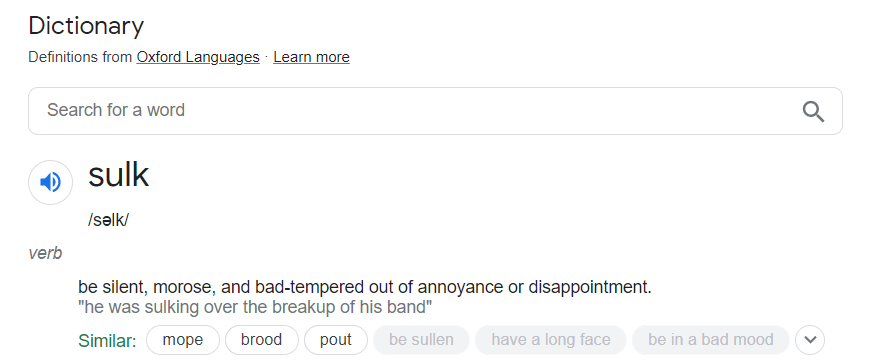Indirect Communication
The poor communication habits that we've carried into adulthood.
One thing I realized throughout the years is the importance of direct communication.
As a child, I didn’t think that expressing my thoughts and feelings was something to be praised for. I had believed that being observant, considerate, not making trouble for anyone would make the adults happy and thus like me more. And I did partially achieve that: I was adored by adults for being 乖 — a sweet, obedient child who makes everyone’s life easy. When I saw a toy that I really liked, I would never express it out loud, leave alone begging my parents to buy it. I would just stare at it and hope the adults would propose to get it for me. When someone said something that hurt my sensitive little heart, I would remain silent and pout instead of arguing back. The adults would often say in exasperation that they wouldn’t know what I had wanted or had felt if I didn’t say it out loud. But I thought that it was just their excuse. They for sure should have known what I wanted! I was the poor victim.
The origins of indirect communication almost always lie in childhood. When we were very young, we often didn’t have the capacity or context to understand and explain what was upsetting us, so we resorted to saying nothing, to hating silently, to having tantrums and to stamping our feet.
(Platt, 2019)
At the time, of course, I had no idea that I would be carrying those communication habits into adulthood. While children are easily forgiven for their moodiness and are also quick to recover from their tantrums, dealing with relationships as adults is much more complicated. The stakes are much higher when poor communication is in place. I began to acknowledge situations in which indirect ways of communication might be more harmful than direct communication, especially when it comes to expressing our needs and negative feelings.
So what are some characteristics of poor and indirect communication?
We assume that others should know.
“We carry with us a powerful idea that we can and should be read wordlessly or, to put it at its starkest, magically” (Platt, 2019).
We panic.
We panic for fear of not being understood, and cope with misleading behaviour like getting bossy and controlling, or being stern and silent. We try to numb ourselves with work, food and wine, or movies. But when our partners see us acting this way, they assume that we’re simply fussy or busy, sullen or self-indulgent, rather than being in a state of distress. As a consequence, we lose the audience we would so desperately need.
We seek attention in regrettable ways.
I think of my cat who used to pee on clean bedsheets as a way to seek attention… punishment, he soon realized, was what he got instead. As adults, we have the ability to explain something quietly. But when carried away by our emotions, we result to employ indirect and often dramatic strategies to make sure that our partner knows that something is bothering us. “Even an act as apparently dismissive as storming out of a room can be a plea for understanding (though delivered in away that is certain to fail)” (Platt, 2019).
We sulk.
Or, if you’re like me and communicate better with emojis than words…
Quoting from the School of Life:
A sulk is one of the more peculiar varieties of indirect communication. We both refuse to say what is bothering us in a polite and kind way – and at the same time perversely hope that our partner will understand what’s wrong and be wholly kind and sympathetic to our cause. When our partner asks what’s the matter, we say very gruffly ‘I’m fine, nothing’s wrong’ – but what we truly mean is: ‘you should already have understood what you’ve done wrong and what’s upsetting me. I’m hoping you’ll now notice and apologize with great kindness but I’m going to make sure you don’t so that I can prove how unkind you are.’ It sounds absurd – and it is.
(Platt, 2019).
This is so accurate! And I’m guilty for having done this with loved ones for most of my life…
But now that I’m equipped with this new self-awareness, next time when I find myself in an upsetting situation, I’ll practice laying out my case directly and maturely, rather than sending unhelpful and confusing signals. Conversely, when faced with a miscommunicating partner, I’d try to see past their tantrums, and understand that these muddled and unkind behaviours are just desperate and disorganized attempts to be loved and understood. 🙂
Platt, R. (2019, February 27). The challenges of communication -. The School of Life Articles. Retrieved March 5, 2022, from https://www.theschooloflife.com/thebookoflife/the-challenges-of-communication/
Favourites of the Week:
Listened: The Four Winds (audiobook) by Kristin Hannah: I can’t read history (working on it though) but historical fiction is my favourite genre. This is the fourth KH book that I’ve read, and this time it’s about the Great Depression and the Dust Bowl. The book provides an intimate look into what it was like for farmers to live through this uncertain and devastating time. Quite heavy and heart wrenching at times, but it did make me appreciate the life we have today so much more…
Have a great weekend!
Ingrid
Recent newsletters:



